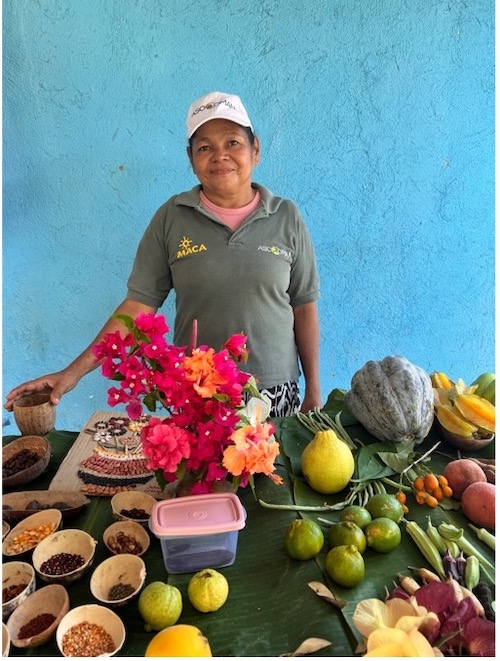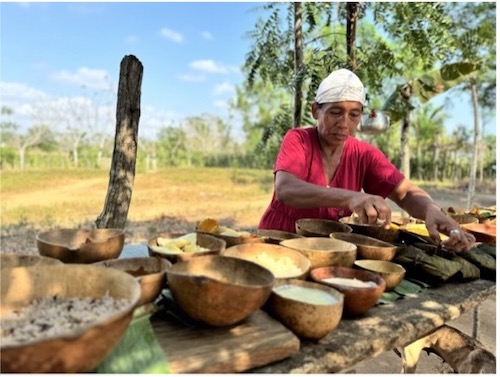Agritourism is more than just a niche market where travelers visit farms and taste local food—it can also be a powerful tool for empowering communities, especially in underdeveloped regions. By focusing on sustainable agricultural practices and local gastronomy, agritourism helps preserve cultural heritage, build food security, and even contribute to peacebuilding in post-conflict areas.
.jpg)
Agritourism and Community Empowerment
In Europe, agritourism has seen significant growth as tourists seek authentic, rural experiences. Visitors are drawn to farm tours, food and wine tastings, and hands-on activities like harvesting crops or cooking traditional meals. While this trend is widely popular in developed countries, agritourism also presents untapped potential for communities in developing regions, especially those recovering from conflict.
Acorn Tourism had the privilege of participating in a project a few years ago in Colombia, in two remote places up in the mountain range. These communities, once deeply affected by violence, were eager to rebuild their lives after a peace agreement was signed. The land, their primary resource, became the cornerstone of their future. These communities were primarily farmers, and with support, they began creating community-based tourism, with agritourism at the heart of their efforts. (Click here to read more about the project)
One of the most remarkable impacts of this project was how it allowed the community to rediscover their culinary heritage. The process of cultivating traditional crops and preparing local dishes had been interrupted by years of conflict, but agritourism offered a chance to revive these practices. By sharing their food culture with visitors, these farmers not only fell in love with their land again but also strengthened their connection to their roots.

The agritourism tours offered an authentic glimpse into the region’s agricultural traditions, from the way crops were harvested to how traditional recipes were prepared. Tourists that were able to live this experience, would pick fruits and plants and learn how to cook regional dishes passed down through generations. This revival of traditional practices also brought renewed pride and confidence to the community.
Agritourism and Peacebuilding
Agritourism in these communities does more than just create another source of income; it also plays a crucial role in rebuilding trust among community members. During the years of violence, mistrust and division grew. However, by working together to grow and prepare food, the community began to heal. The collective effort to promote their region’s agricultural heritage fostered unity and allowed them to confront old tensions.
As they worked on agritourism initiatives, they relied on one another, shared their knowledge, and collaborated to create a product they could all be proud of. Agritourism helped ease some of the lingering conflicts from the past, showing how agricultural projects can be a catalyst for peace in post-conflict zones.

This project in Colombia could easily be applied to other parts of the world. Agritourism offers a way for rural communities to share their culture, secure their food systems, and build long-term economic stability. In countries struggling with conflict or economic hardship, agritourism can be a lifeline, bringing hope and new opportunities for future generations.
In Colombia, there is currently a significant trend among restaurants—especially in Cartagena, Cali, Medellín, and Bogotá—that incentivizes local gastronomy by using local ingredients. These restaurants focus on sourcing everything from local farmers to encourage them to continue cultivating their crops and producing local products. Additionally, they are starting to take some VIP customers to visit the farms and experience authentic community-based gastronomic experiences—an agritourism experience.
For communities in underdeveloped regions, especially those emerging from conflict, agritourism provides a way to recover their heritage, strengthen social bonds, and find sustainable solutions for their future. It offers a model for rural development that empowers locals, preserves traditions, and promotes peace.
If you're interested in exploring the potential of agritourism and learning more about market demand, Acorn Tourism Consulting has been conducting valuable research in this area. Please reach out to us at Alison@acorntourism.co.uk to discover how agritourism can make a difference in your community.
Related
Comments
Nobody has commented on this post yet, why not send us your thoughts and be the first?


.png)





